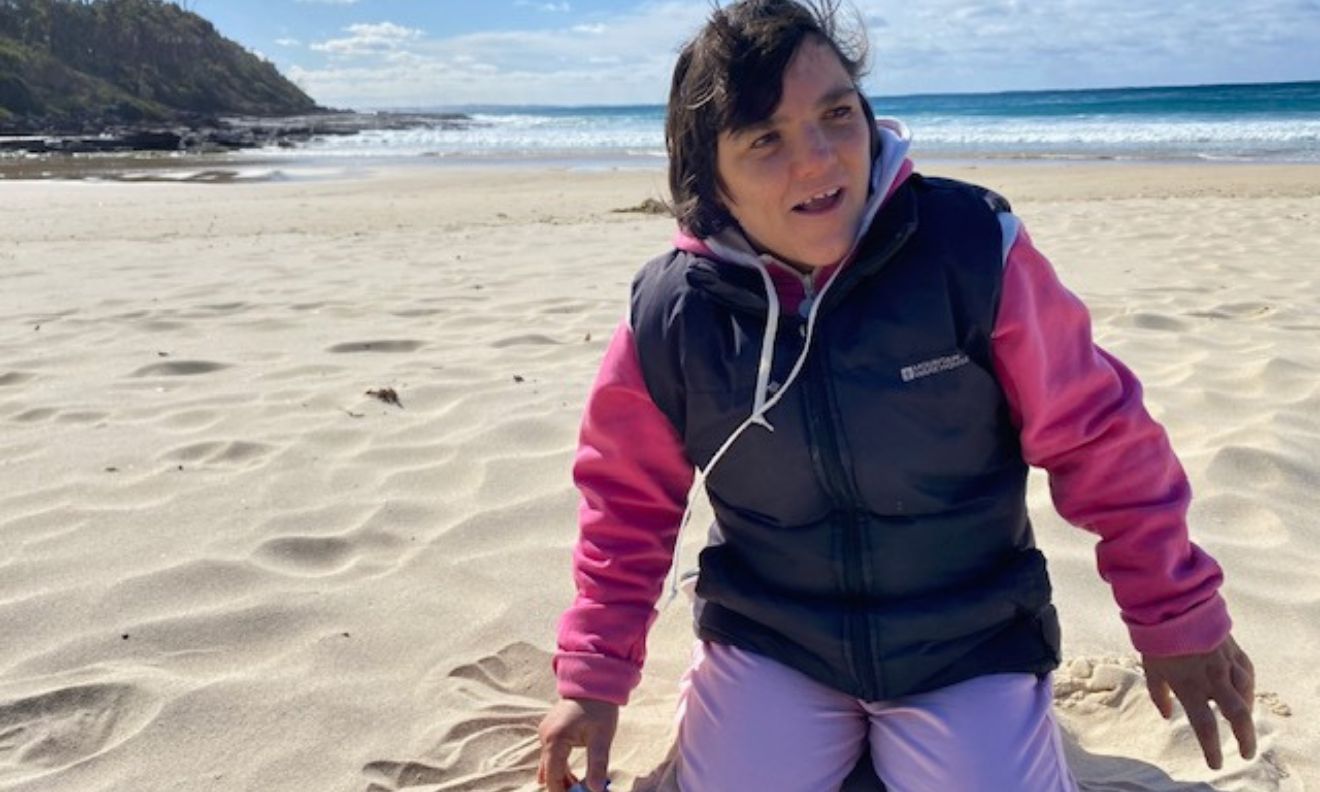Maree and her husband have built their life around caring for their daughter Olivia, who was born with a rare genetic disorder. Though Olivia experienced health difficulties and developmental delays from infancy, she was almost 30 years old before medical experts were able to accurately diagnose the cause.

‘Had Olivia not been my fifth child, I would have floundered more than I did with her early months of life. She was difficult to settle to sleep, constantly vomited up her feeds and was often unwell,’ Maree explains.
When Olivia was a toddler, the family was told that she had an unknown genetic condition. Tissue and blood samples were taken so that they could continue testing as new conditions were identified in the future.
‘I constantly researched, looking for evidence of other children like Olivia, to see if she matched any of the known, rarer syndromes,’ Maree says.
Throughout Olivia’s childhood, and into adulthood, Maree took her to see a long list of medical professionals including gastroenterologists, neurologists, the Royal Children's Hospital team, and paediatric specialists, to assess and treat her multiple and complex needs.
Olivia is non-verbal, ambulant (uses a wheelchair for community access), has intellectual disability, and multiple seizure types. She is also admired by those who know her for her determination, resilience and sense of humour.
‘Sometimes when we think she isn’t following our conversation, she will react with a giggle or hearty chuckle at the appropriate moment,’ Maree says.
In 2014, the family were asked for a further blood sample for genetic screening. Two years later, when Olivia was almost 30 years old, her neurologist identified the most likely cause of her developmental delays and encephalopathy. Olivia has a variant of the gene MLL also known as KMT2A. This gene has been identified as the cause of Weidemann-Steiner syndrome.
Maree and her husband, now retired, are grateful for the introduction of the NDIS. Although the bureaucracy and administration that comes along with it has been extremely stressful, having funding has helped Olivia maintain her quality of life, remain living at home and meet her health goals.
‘I love the nights now that we have NDIS funding, when I can stay in bed and not be up and down … Life is better for Liv and my husband and me.’
Olivia has a network of support workers, who not only support her overnight several times a week, but also assist with her daily care, and take her out during the day for community-based activities.
‘Olivia ambles on the beach, loves wetland tramps, runs in her own way around the footy oval, rides her NDIS funded modified bike, and enjoys all forms of music. Weidemann-Steiner syndrome is just a medical label — it does not define our daughter nor the life she happily lives.’
In recent years, Maree has become what’s known as a ‘sandwich carer’ – not only caring for Olivia, but also providing emotional support for her elderly mother, who lives over an hour away, and undertaking care of her mother’s financial affairs. This dual caring role means Maree often feels spread thin, unable to spend as much time as she’d like with her other family members. ‘I try to stay energised sufficiently these days to enjoy life with my grandchildren and [other] adult children, to do things I enjoy to keep my mood from falling.’
Even though it can feel impossible, Maree stresses the importance of carers taking regular time out to do something for themselves, to help to alleviate low mood, withdrawal and anxiety.
‘My special time is choir rehearsals. I sing in two choirs and have now participated in community choirs for around 16 years. I love to let the endorphins flow and forget for a couple of hours.’
If you could benefit from making time for yourself or want to connect with other carers, see our Calendar for Carers to find an activity near you.
 Free Call 1800 514 845
Free Call 1800 514 845
 Contact Us
Contact Us
